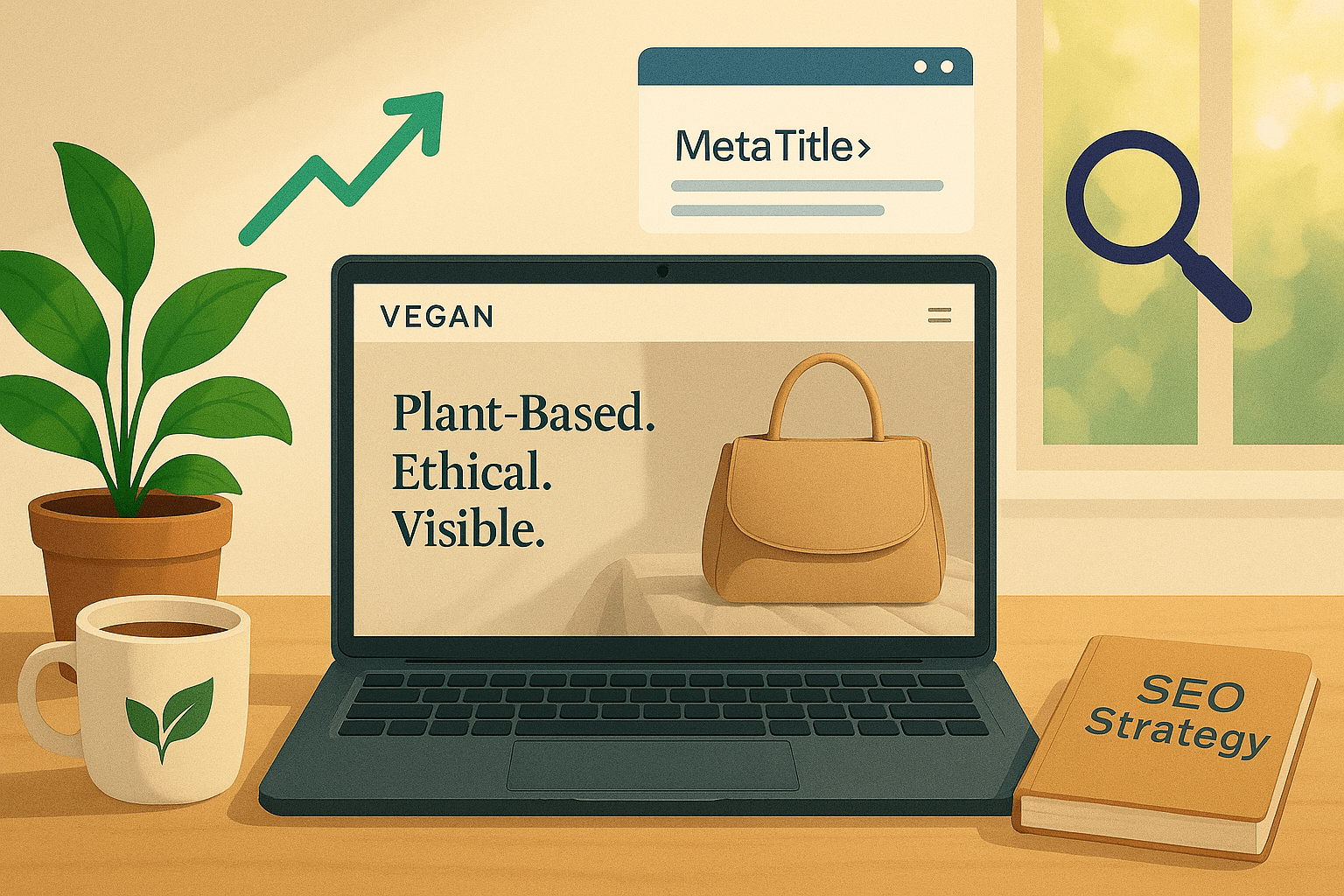
Discover Essential Sustainable Marketing Principles and Strategies for Ethical Business Growth
by Pancham PrasharGiven the major issues that our world is currently facing, such as pollution and climate change, sustainability becomes an inevitable choice. Marketing plays a key role in promoting sustainability by influencing what people buy, how companies operate, and even how society thinks. Through responsible marketing, we can encourage people to choose eco-friendly products, restore and heal, and also show companies how to be more responsible, and spread awareness about environmental issues.
Sustainable marketing is increasingly gaining more importance. Why? Because millennials, who make up a significant portion of consumers, are becoming more environmentally conscious. They’re changing the way they buy things, preferring products that are better for the planet.
A FirstInsight report shares that almost 90% of Gen X consumers are showing their willingness to pay an additional 10% or more for sustainable products, a significant increase from just over 34% two years ago.
This shift in consumer behavior is shining a spotlight on the need for ethical marketing practices in today’s society.
The ABCs of Sustainable Marketing: Five Simple Principles
Here are five main principles that guide sustainable marketing practices. Let’s see how we can use them to make our marketing strategies better.
1. Consumer-Focused Marketing
Around 87% of consumers would purchase a product because a company advocated for an issue they cared about.
Sustainable marketing relies on strong customer empathy and understanding. It emphasizes aligning with customers’ desires, values, and aspirations towards a more ethical and eco-friendly society. By doing so, businesses can more efficiently meet consumer demands while tackling critical ethical and environmental challenges.
2. Purpose-Driven Marketing
This principle highlights the power of a brand’s commitment to creating a positive impact beyond mere financial gains. By openly sharing their values and commitment to sustainability, brands forge deeper connections with consumers who share their vision, supporting a collective effort towards a better world.
Discover how deepening your understanding of purpose-driven content strategies and the impact of purpose-driven branding on consumer engagement can elevate consumer trust and nurture a sustainable community.
3. Customer Value Marketing
Emphasizing the value of products beyond their benefits and services, sustainable marketing focuses on satisfying customers’ needs while also benefiting the environment and society. This approach encourages companies to innovate and develop products and services without compromising affordability and quality.
4. Societal Marketing
Societal marketing goes beyond profit-driven motives, focusing on educating, raising awareness, and inspiring positive social and environmental change. Businesses can use their influence to become catalysts for societal progress, engaging consumers in meaningful initiatives.
5. Innovative Marketing
At the heart of sustainable marketing is innovation—finding novel ways to tackle environmental challenges while captivating the audience. Through cutting-edge technology, compelling storytelling, and creative campaigns, brands can stay ahead of the curve, inspiring both the market and their peers to join in their sustainability efforts.
For brands looking to lead, explore innovative practices in sustainable e-commerce to discover how technology and creativity merge in eco-friendly business models.
By adopting these five principles, businesses can craft marketing strategies that are not only effective but also deeply rooted in ethical practices and sustainability, paving the way for a future where commerce and conservation go hand in hand.
Why Sustainable Marketing Deserves Attention
Sustainable marketing isn’t just a moral obligation; it’s a secret weapon in today’s cutthroat economic landscape. Companies that weave sustainability into their marketing strategy not only reap rewards but also leave a positive footprint on the planet. Let’s look at more reasons why we need responsible marketing.
- Addressing Consumer Demand: Consumers are increasingly seeking brands that align with their values, and sustainable marketing can help businesses foster trust and loyalty by showcasing environmental stewardship and ethical practices.
- Enhancing Brand Reputation: Sustainable marketing enhances a business’s reputation by promoting ethical and eco-friendly initiatives, fostering transparency, credibility, and goodwill among consumers.
- Driving Innovation and Differentiation: Sustainability drives innovation, positioning businesses as industry leaders by promoting eco-friendly products.
- Fulfilling Regulatory Needs: In order to keep up with evolving regulations and minimize risks while securing operations for the long term, companies need to prioritize sustainable marketing strategies that address ethical and environmental issues.
- Improving the World: Through initiatives that support social equity, environmental preservation, and ethical conduct, companies can play a crucial role in fostering a sustainable future for everyone.
Transparency is not just a buzzword but a foundational element of sustainable marketing. For insights on understanding the importance of transparency in e-commerce, consider how open communication can foster a deeper consumer relationship
Strategies for Sustainable Marketing
When you weave eco-conscious marketing strategies into your business, you’re not just following ethical and environmental guidelines; you’re also boosting your brand reputation and setting yourself up for long-term success. Let’s discuss some innovative strategies that align with ethical and environmentally conscious practices.
1. Offer eco-friendly products or services: This involves making products or services using materials and processes that are kind to the environment. For example, creating clothes from organic cotton or recycled materials is a way to embrace sustainability in production.
Example: EarthHero prioritizes transparency and environmental responsibility in their supply chain, ensuring that all their products are made from eco-friendly materials such as organic cotton, bamboo, and recycled plastics.
Offering eco-friendly products is just the start. To effectively reach your audience, strategies for marketing sustainable products can provide a roadmap for impactful communication and engagement.
2. Use recyclable or biodegradable packaging: Businesses can cut down on waste by opting for packaging materials that can be recycled. This might mean using biodegradable containers or cardboard boxes that can be recycled, helping to shrink their impact on the environment.
Example: Dr. Bronner’s is a family-owned soap company that packages its products in bottles made from 100% post-consumer recycled plastic, promoting recycling and reducing plastic waste.
3. Implement energy-efficient practices in operations: The goal of this strategy is to cut down on energy use and greenhouse gas emissions in everyday business activities. This can be done by installing energy-saving lights, fine-tuning heating and cooling systems, and tapping into renewable energy sources.
Example: SunCommon is a solar energy company that helps homeowners and businesses transition to clean energy by installing solar panels, reducing reliance on fossil fuels, and minimizing carbon emissions.
4. Support environmental causes through partnerships or donations: Businesses can show their commitment to sustainability by teaming up with environmental groups or giving a part of their earnings to conservation projects. This might include backing efforts like reforestation or wildlife protection.
Example: Tiny Yellow Bungalow is an eco-conscious company specializing in zero-waste and sustainable living products, ranging from reusable straws and utensils to plastic-free household items. They actively partner with environmental organizations and allocate a percentage of their profits to support initiatives such as ocean cleanup efforts, tree planting campaigns, and wildlife conservation projects.
Supporting environmental causes showcases a brand’s commitment to sustainability. However, navigating challenges and opportunities in B Corp marketing can offer valuable lessons in aligning business operations with ecological goals.
5. Engage in transparent communication about sustainability efforts: In sustainable marketing, being open and honest builds trust with customers. Businesses should share their sustainability efforts on websites, social media, and product labels to keep everyone in the loop.
Example: Seventh Generation is a household and personal care product company that is transparent about its sustainability efforts, providing detailed information on its website about ingredient sourcing, product packaging, and environmental impact.
6. Collaborate with influencers or advocates who promote eco-conscious living: Collaborating with environmental advocates can help a business promote its products and values while amplifying their message.
Example: TOMS is a shoe company that collaborates with environmental advocates and influencers to promote sustainable living and ethical consumerism, leveraging their platforms to raise awareness about social and environmental issues.
7. Host educational events or workshops on sustainable living: Businesses can promote sustainable living practices by organizing events or workshops and educating customers and communities on topics like zero-waste living, sustainable gardening, and eco-friendly home design.
Example: The Ecology Center is a nonprofit organization that hosts workshops and educational events on sustainable living, gardening, and composting, providing resources and education to community members interested in adopting more eco-friendly lifestyles.
Next Step: Developing a Sustainable Marketing Plan
Crafting a sustainable marketing plan involves careful planning and consideration of environmental and social factors. Here are some simple yet important best practices for creating a sustainable marketing plan:
1. Commit to a Cause
Link your brand with a cause that reflects your values, like supporting renewable energy or fighting climate change.
2. Long-term Thinking
Focus on sustainability for the long haul, investing in practices that benefit future generations rather than just seeking short-term gains.
3. Educate Your Audience
Use your marketing channels to teach consumers about sustainability and how they can make eco-friendly choices.
4. Company-wide Sustainability
Make sustainability part of your business’s DNA by incorporating it into every aspect, from operations to marketing.
5. Stay Consistent
Keep your sustainability efforts and messaging consistent across all platforms to build trust with your audience.
As you craft your sustainable marketing plan, incorporating green marketing strategies can distinguish your business in a crowded marketplace while advancing environmental goals.
FAQs on Sustainable Marketing
1. What is sustainable marketing?
Sustainable marketing is the process of designing and implementing marketing strategies that are rooted in the principles of sustainability. It involves promoting products, services, and brands that are environmentally friendly, socially responsible, and ethically produced.
2. How can businesses communicate climate change through marketing?
Businesses can communicate climate change through marketing by raising awareness, sharing educational content, showcasing sustainable practices, and offering eco-friendly products or solutions. They can leverage various channels, such as social media, advertising, and content marketing, to convey their message effectively.
3. What are the five sustainable marketing principles?
The five sustainable marketing principles are consumer-focused marketing, mission-driven marketing, customer value marketing, societal marketing, and innovative marketing. These principles prioritize long-term societal and environmental well-being alongside profitability.
4. What are B Corps businesses?
B Corps are companies certified for meeting high standards of social and environmental impact, accountability, and transparency, balancing profit with purpose to benefit all stakeholders. They aim to use business as a force for good, balancing profit with purpose.
5. What is an example of a sustainable marketing plan?
An example of a sustainable marketing plan could involve incorporating eco-friendly packaging, promoting ethical sourcing practices, launching cause-related marketing campaigns, and engaging with environmentally conscious influencers and partners.
6. What is a good example of sustainability in business?
One good example of sustainability in business is the outdoor apparel company XYZ. They are committed to environmental sustainability through initiatives such as using recycled materials in its products, supporting grassroots environmental organizations, and advocating for environmental policies.
In today’s digital age, social media platforms like Instagram play a crucial role in storytelling. Discover how sustainable brands can utilize Instagram to amplify their message and connect with a global audience committed to making a difference.
Final Thoughts
The World Health Organization says a shocking 12.6 million people die each year from environmental health problems.
This tells us how crucial it is for all sectors, including marketing, to adopt sustainable practices. Businesses have a big responsibility to deal with environmental issues and promote public health.
How can businesses contribute? Well, by making sure their operations are eco-friendly and don’t harm public health. That means using sustainable materials, reducing pollution, and being mindful of how their actions affect the environment.
At Cueblocks, we understand the importance of sustainable marketing and leverage our expertise to create impactful campaigns that resonate with eco-conscious consumers.
We encourage readers to explore Cueblocks’ services for sustainable digital marketing solutions and join us in creating a greener, more sustainable future. Together, we can drive positive change and make a difference in the world.
- About the Author
- Latest Posts
CEO of CueForGood, I lead a team of around 40 experts at CueForGood, where we strive to propel organizations making a positive impact. Since 2005, we’ve honed our expertise in eCommerce development, digital marketing, and creative design, all aimed at promoting meaningful messages. I am eager to connect with like-minded organizations and explore how we can amplify your impact together.
3 Replies to “Discover Essential Sustainable Marketing Principles and Strategies for Ethical Business Growth”
Add a comment
-
Email Marketing Without Fatiguing Conscious Consumers
by Charanjeev Singh
How to build trust, reduce inbox overload, and engage with intention Email marketing is a powerful tool. It lets …
Continue reading “Email Marketing Without Fatiguing Conscious Consumers”
-
How to Market Vegan Products Without Preaching (or Losing Sales)
by Tapam Jaswal
Marketing vegan products isn’t just about talking to people who already follow a vegan lifestyle. It’s also about connecting with …
Continue reading “How to Market Vegan Products Without Preaching (or Losing Sales)”
-
Vegan SEO: Optimizing Organic Visibility for Vegan Brands
by Tapam Jaswal
More people than ever are interested in vegan products and services. If you run a vegan brand, ensuring customers can …
Continue reading “Vegan SEO: Optimizing Organic Visibility for Vegan Brands”
-
Google AI Mode Explained: How It’s Reshaping Search and Content with Real Examples & Tips
by Tapam Jaswal
If you’re in SEO or content and have been watching Google’s changes, you already know: AI Mode isn’t a minor …
-
Jiva’s Organic Traffic Growth: 354% Surge in 6 Months | CueForGood
by Nida DanishSummary: Jiva’s efforts to empower smallholder farmers weren’t gaining the digital traction they deserved. With a strategic overhaul led by …
Continue reading “Jiva’s Organic Traffic Growth: 354% Surge in 6 Months | CueForGood”
-
What We Learned When We Switched From Disposable Tissues to Reusable Napkins
by Nida DanishAt CueForGood (CFG), we’ve embraced a refreshing change: reusable cloth napkins. While the switch may seem minor, it’s rooted in …
Continue reading “What We Learned When We Switched From Disposable Tissues to Reusable Napkins”






Greetings Pancham Prasher,
I hope this message finds you well.
I came across your article and thought that the section on developing a sustainable marketing plan was particularly useful. I also thought it resonated with the one I recently wrote about Green Digital Practices for Businesses (https://digital.hec.ca/en/blog/green-digital-marketing-for-business/). Perhaps it could also be of interest for your audience. What if we connect and discuss these green synergies further?
Looking forward to hearing back from you,
Best regards,
Romy Lemieux-Uresandi
Student at HEC Montreal, Canada